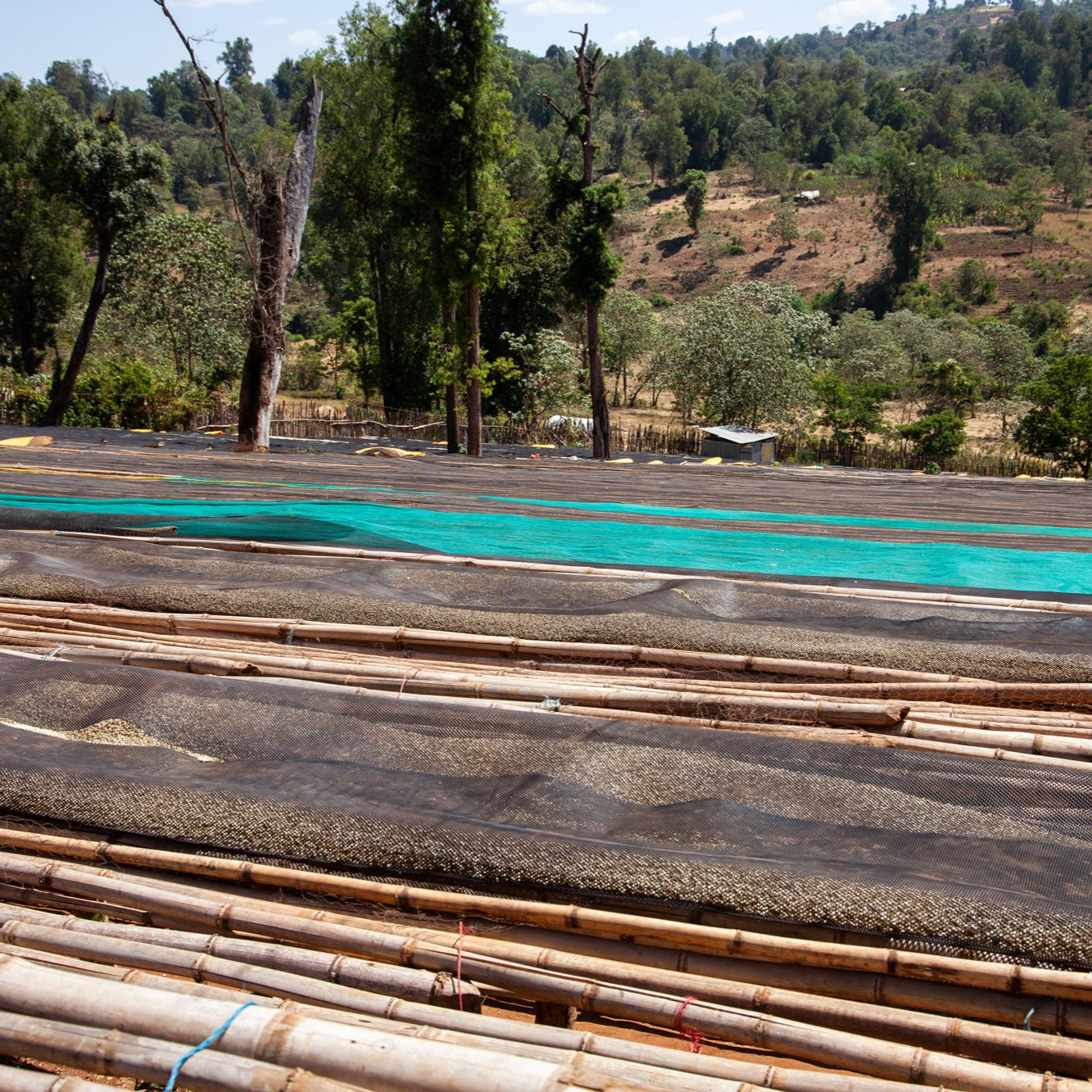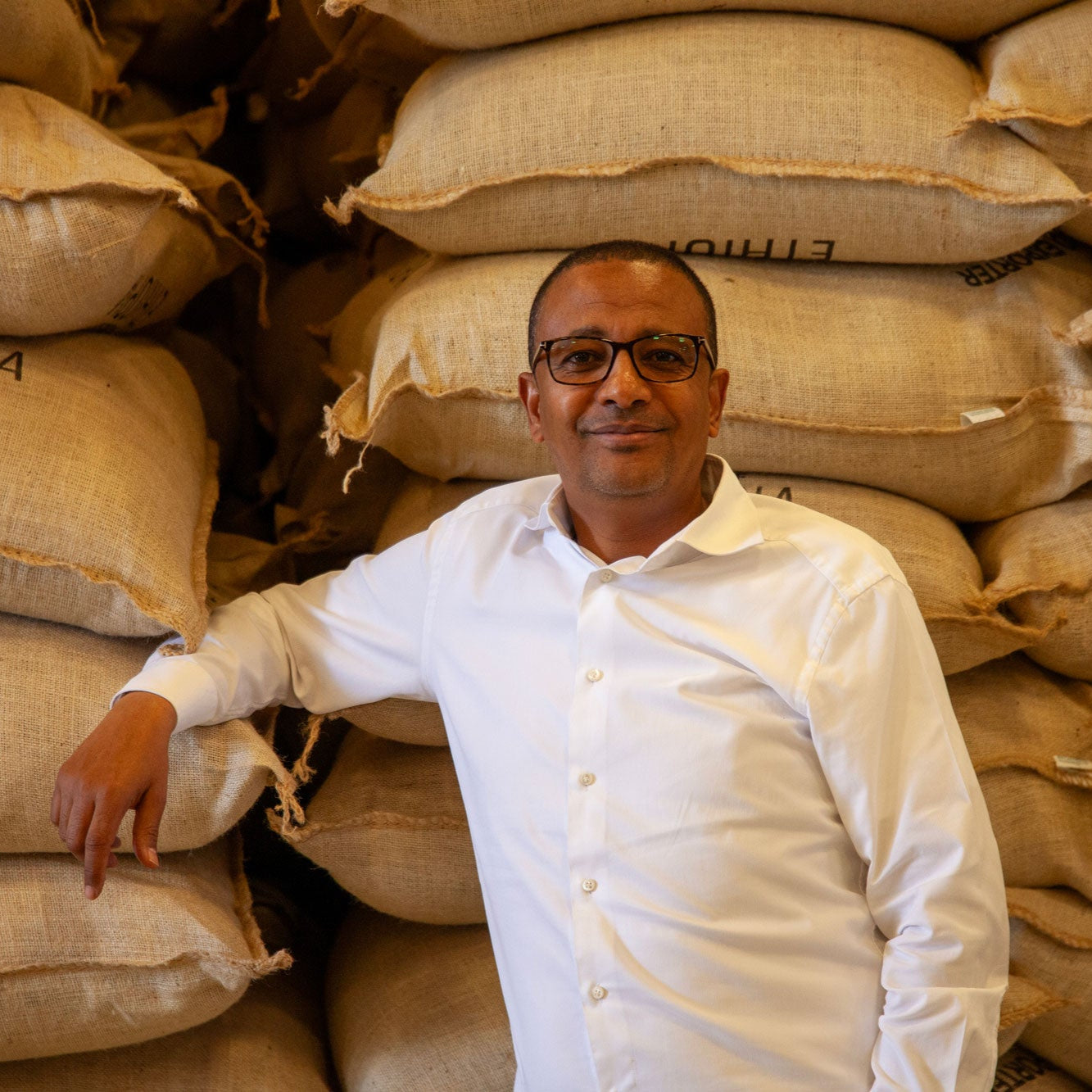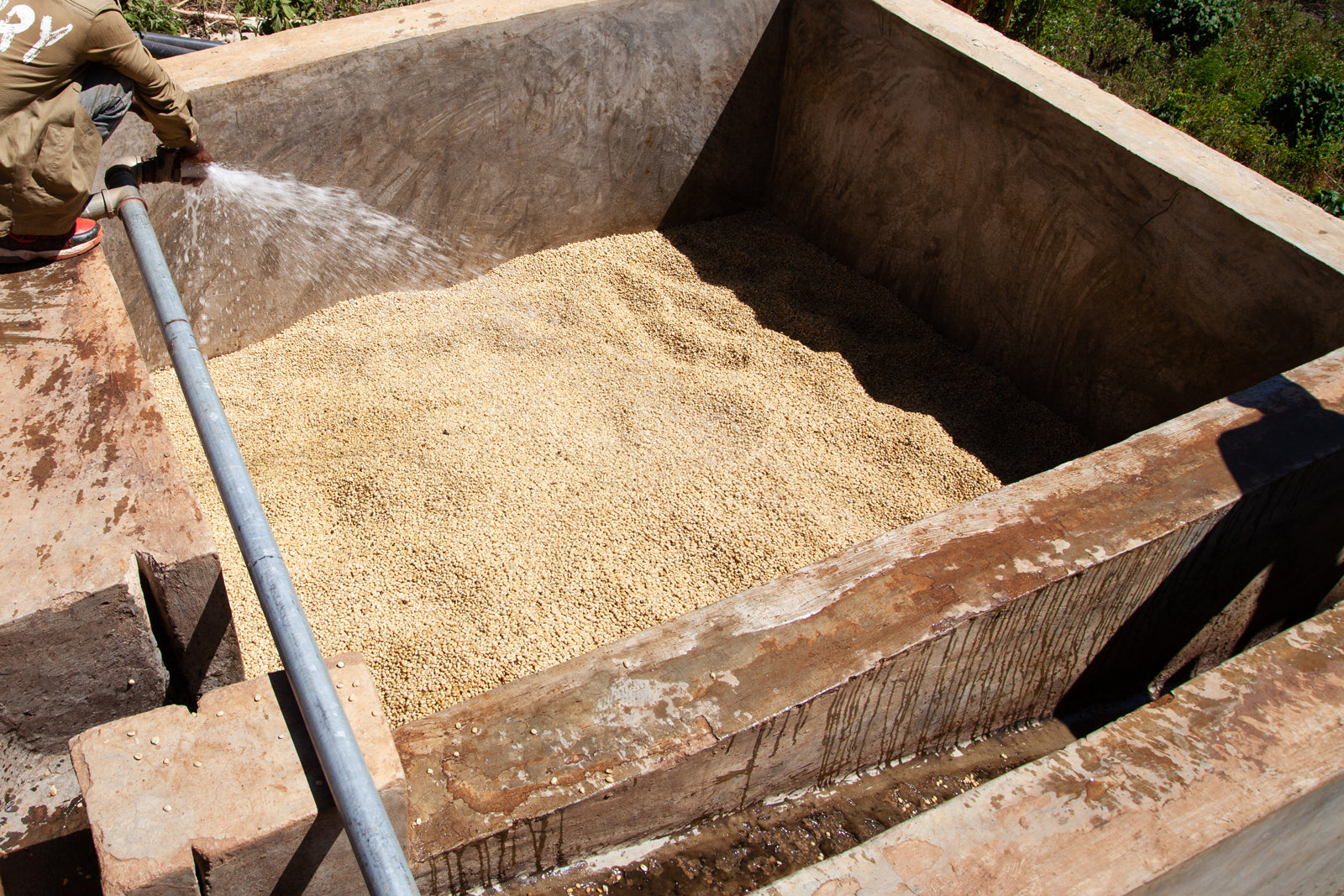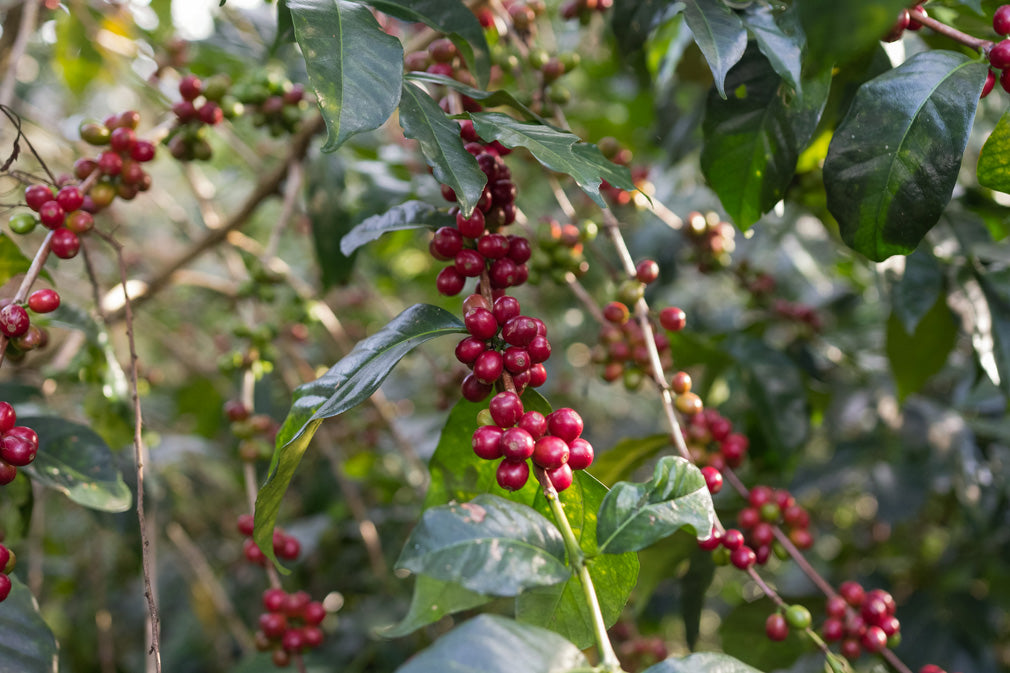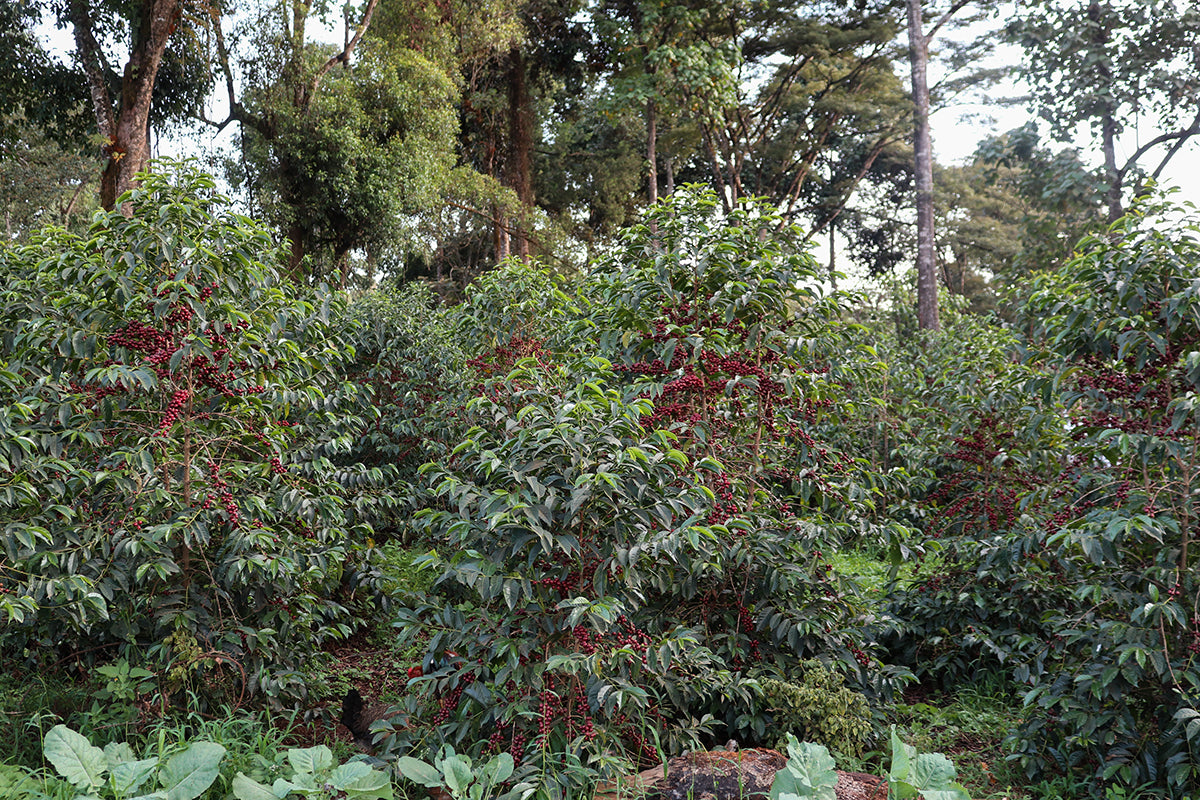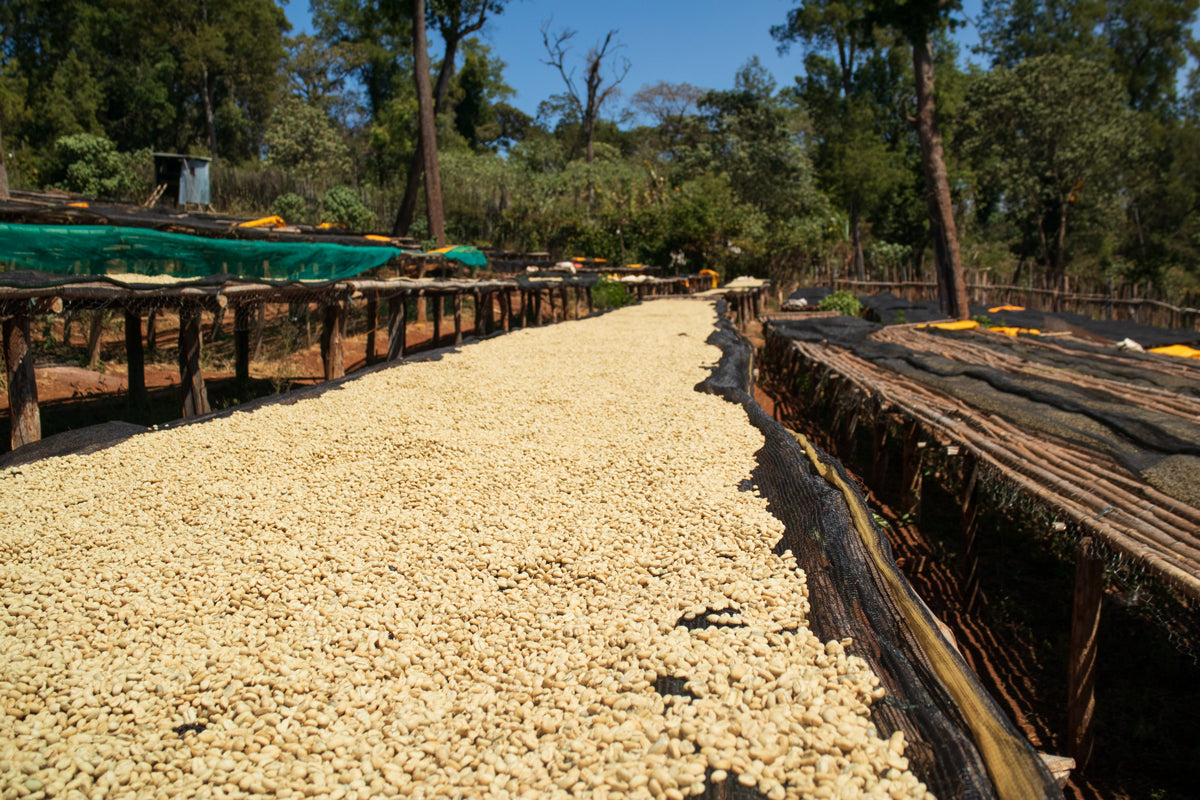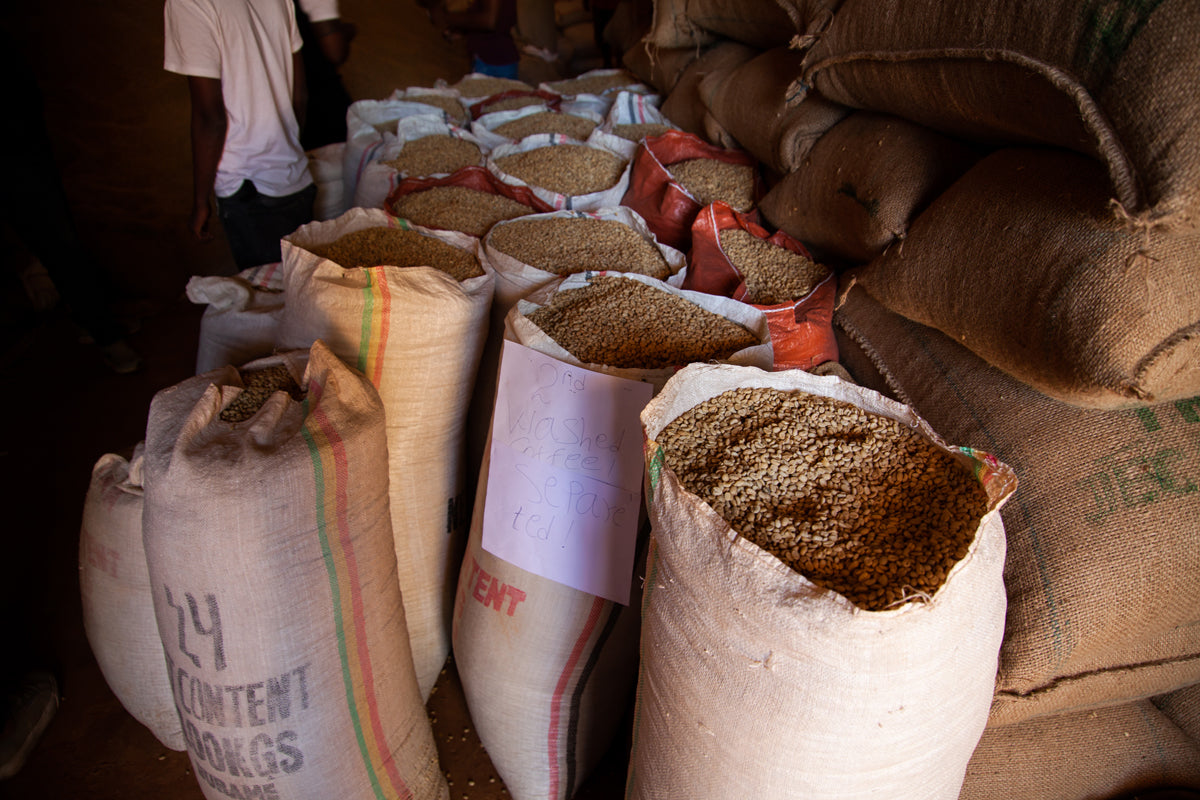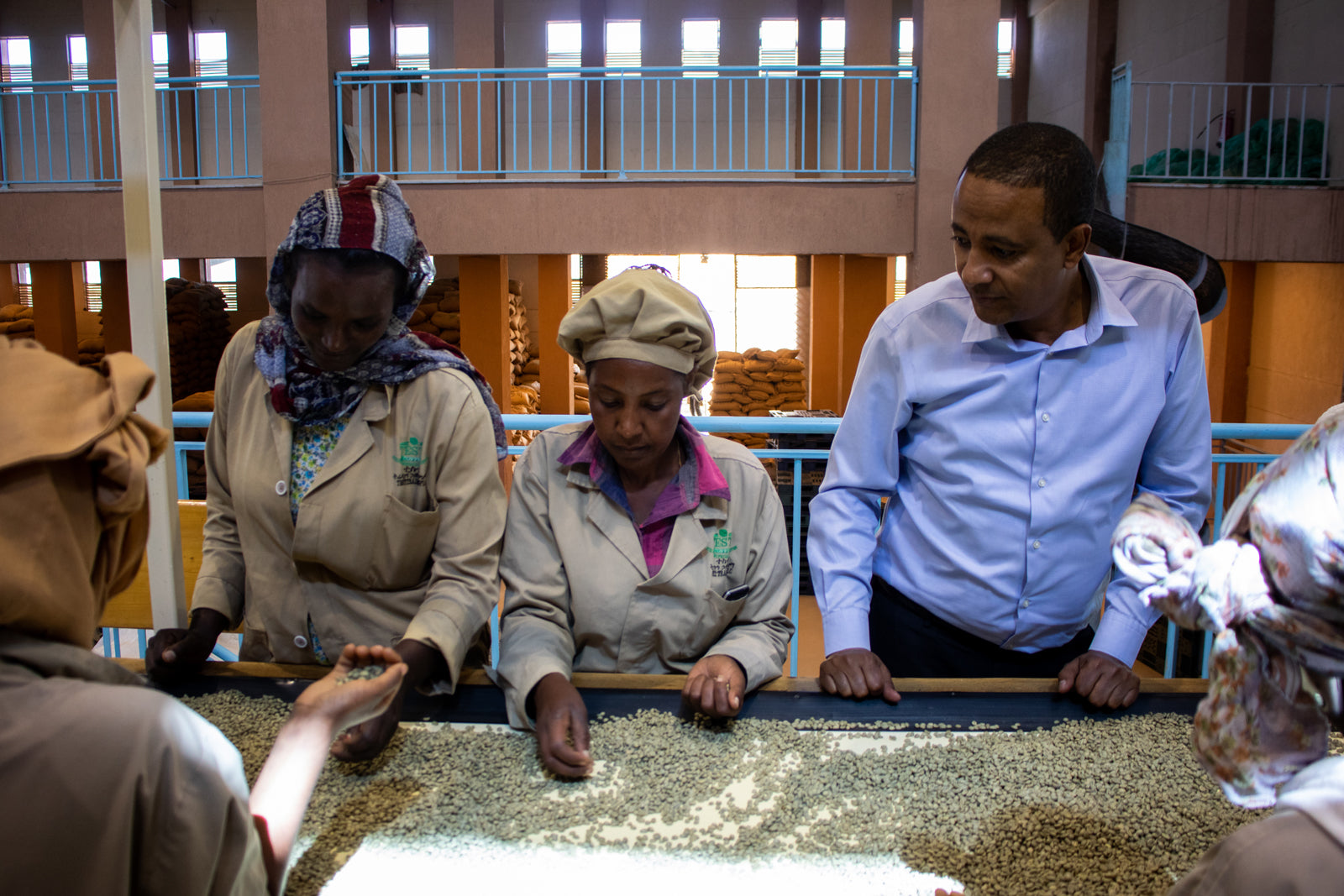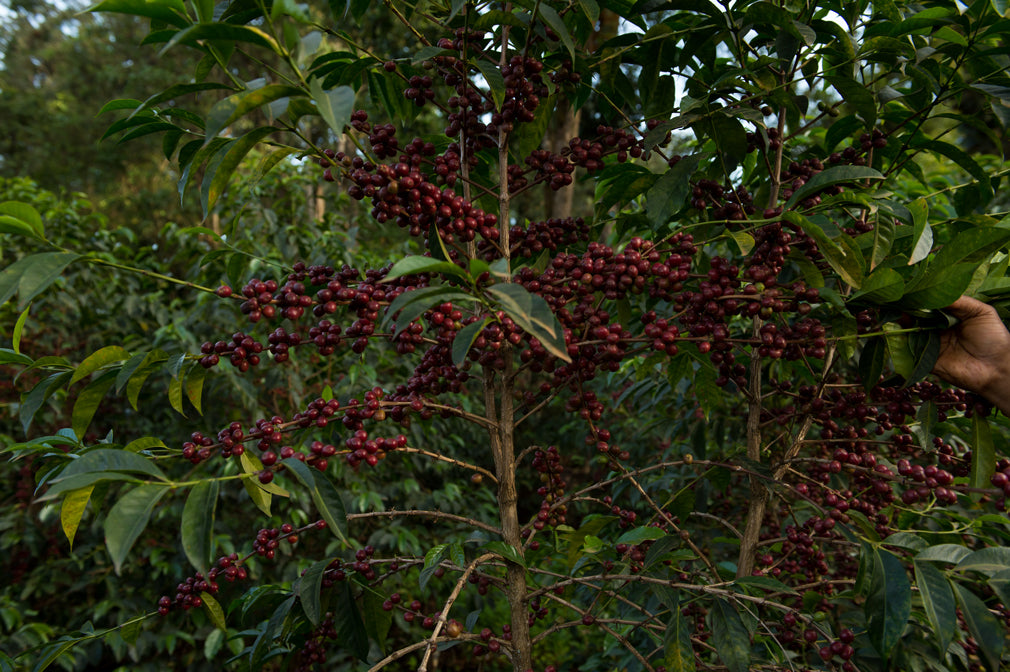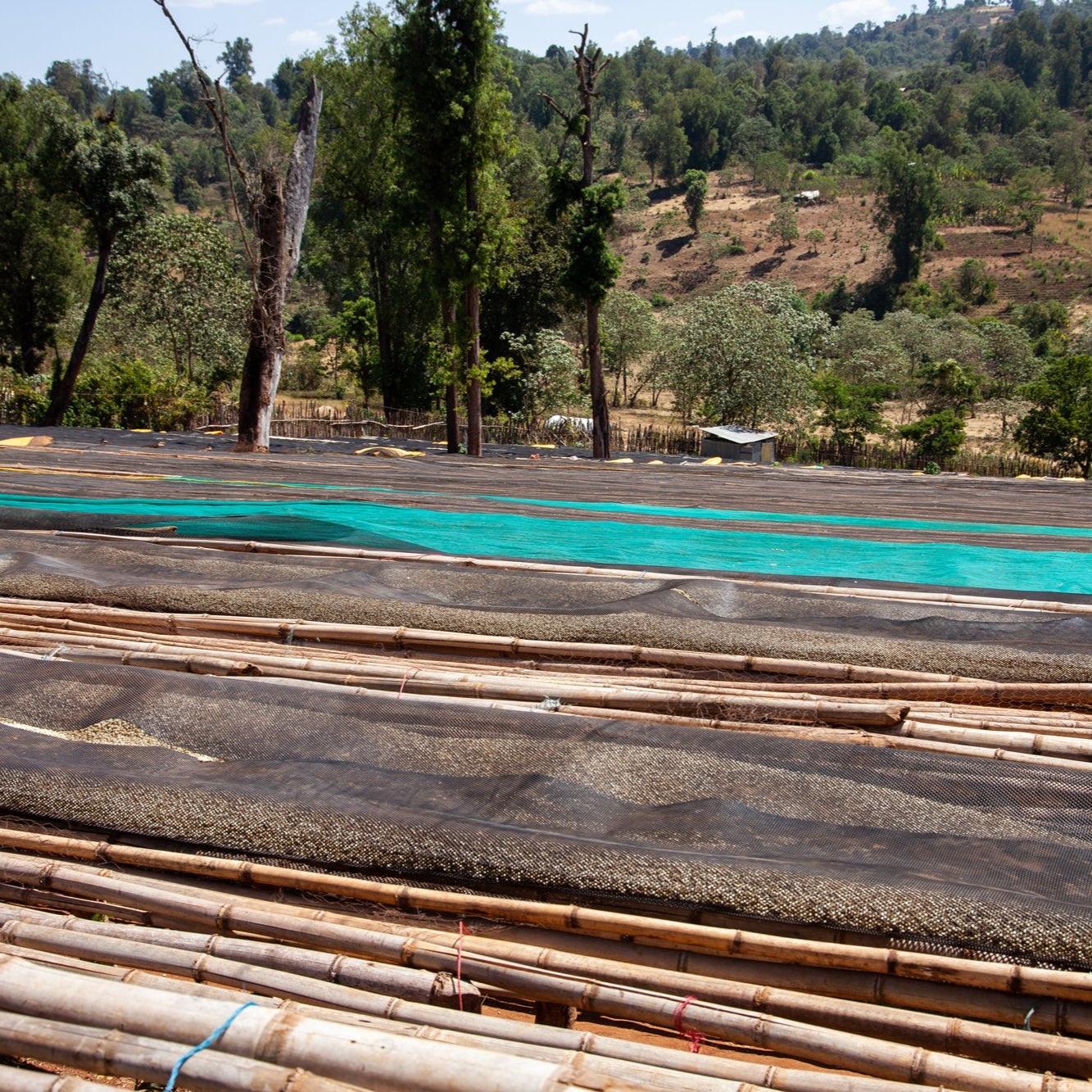
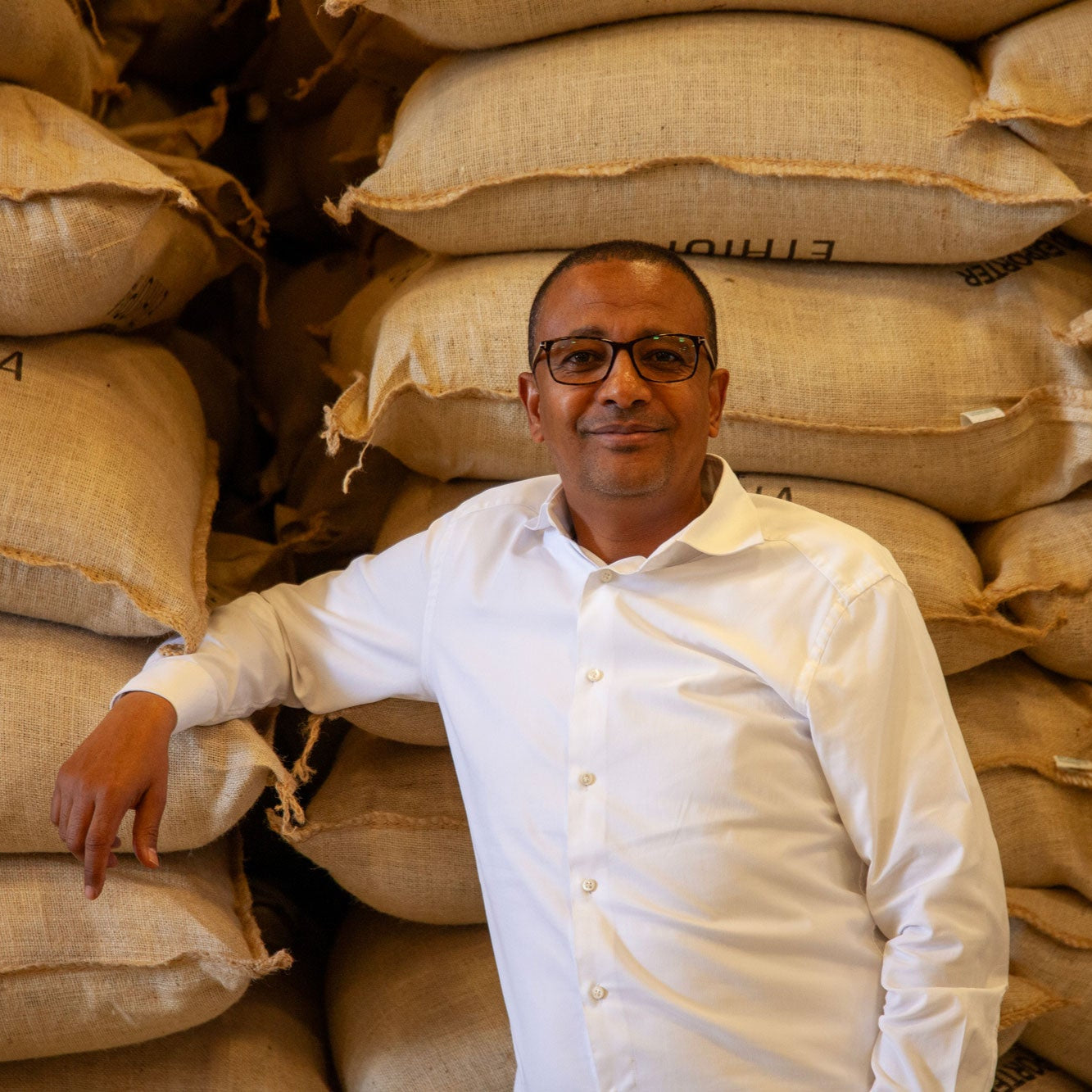
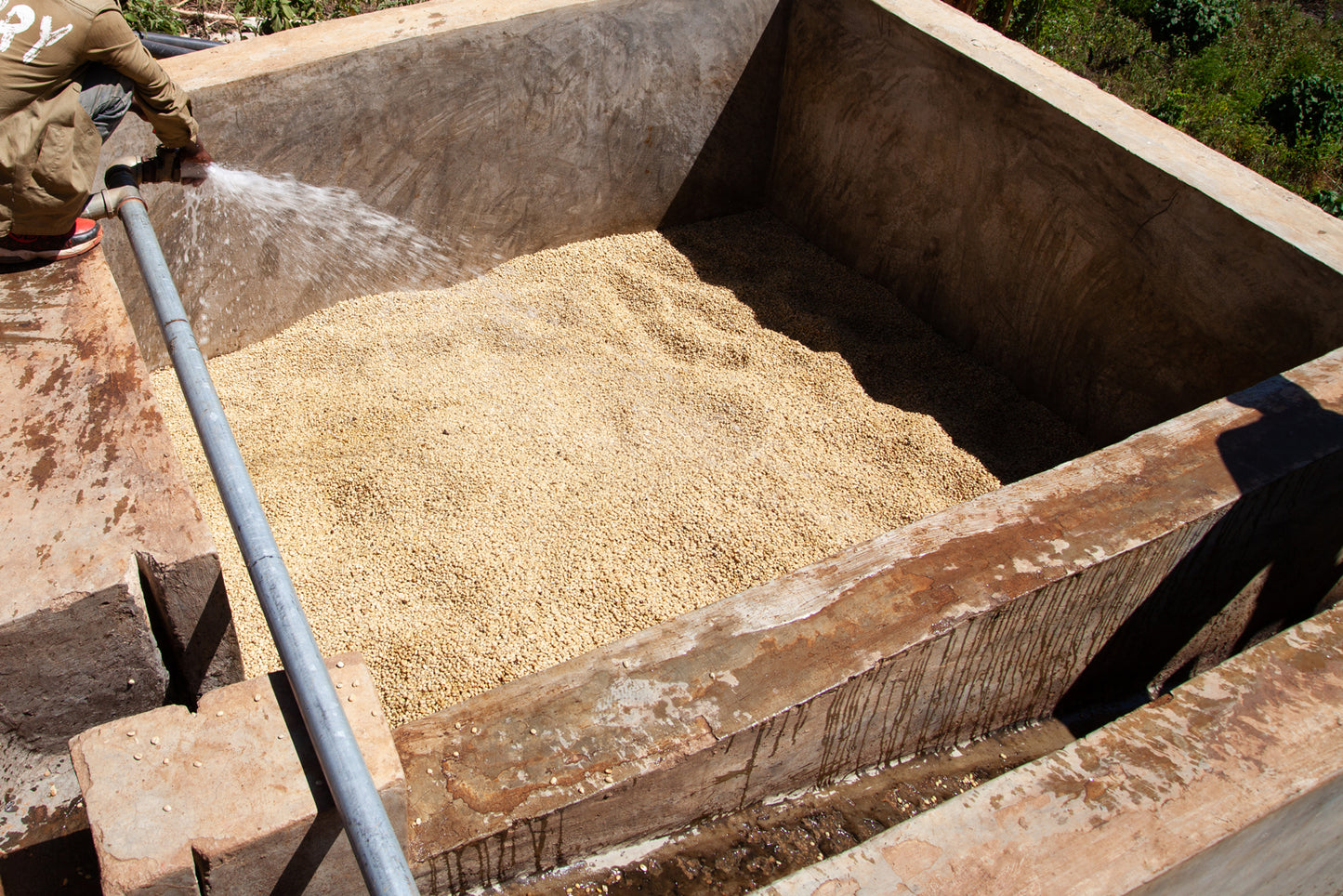
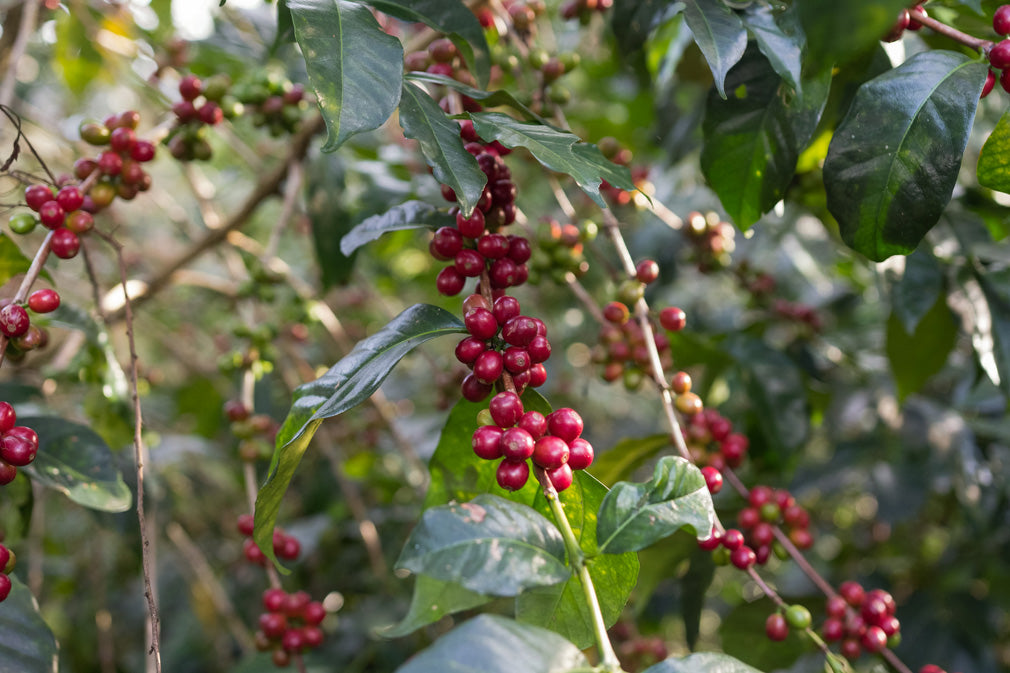
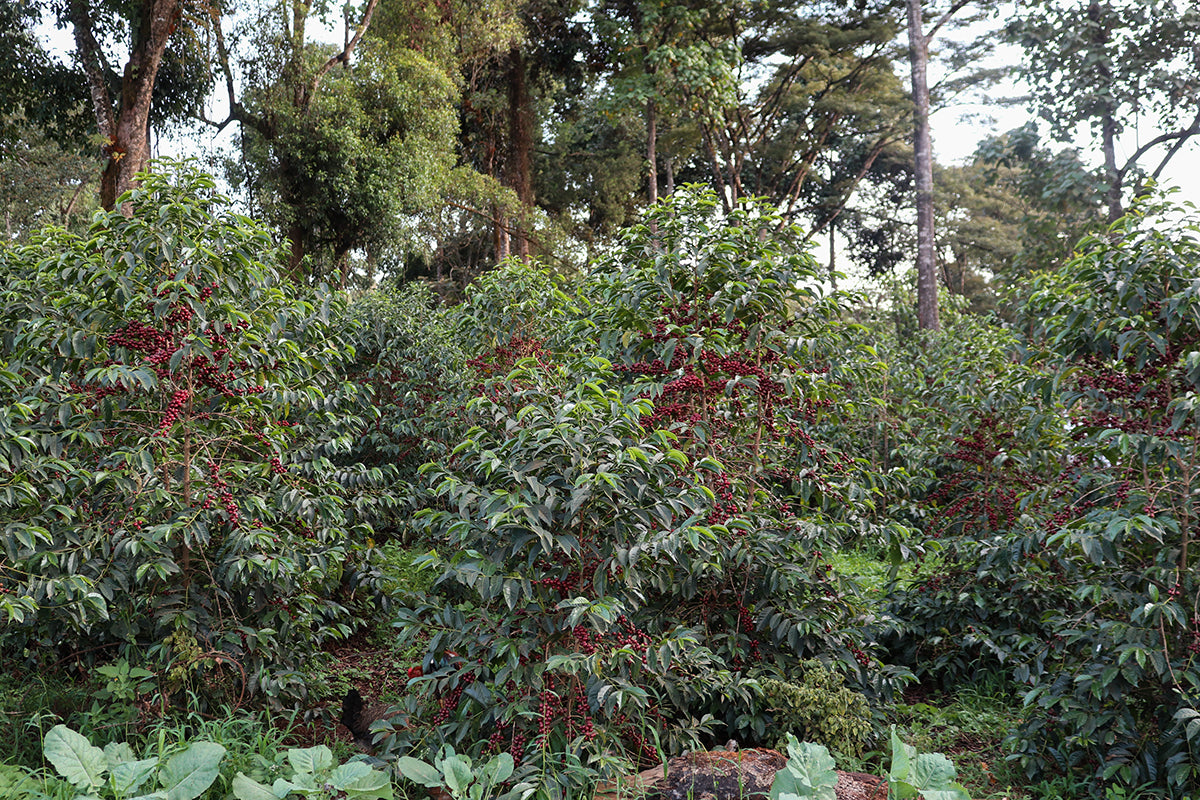
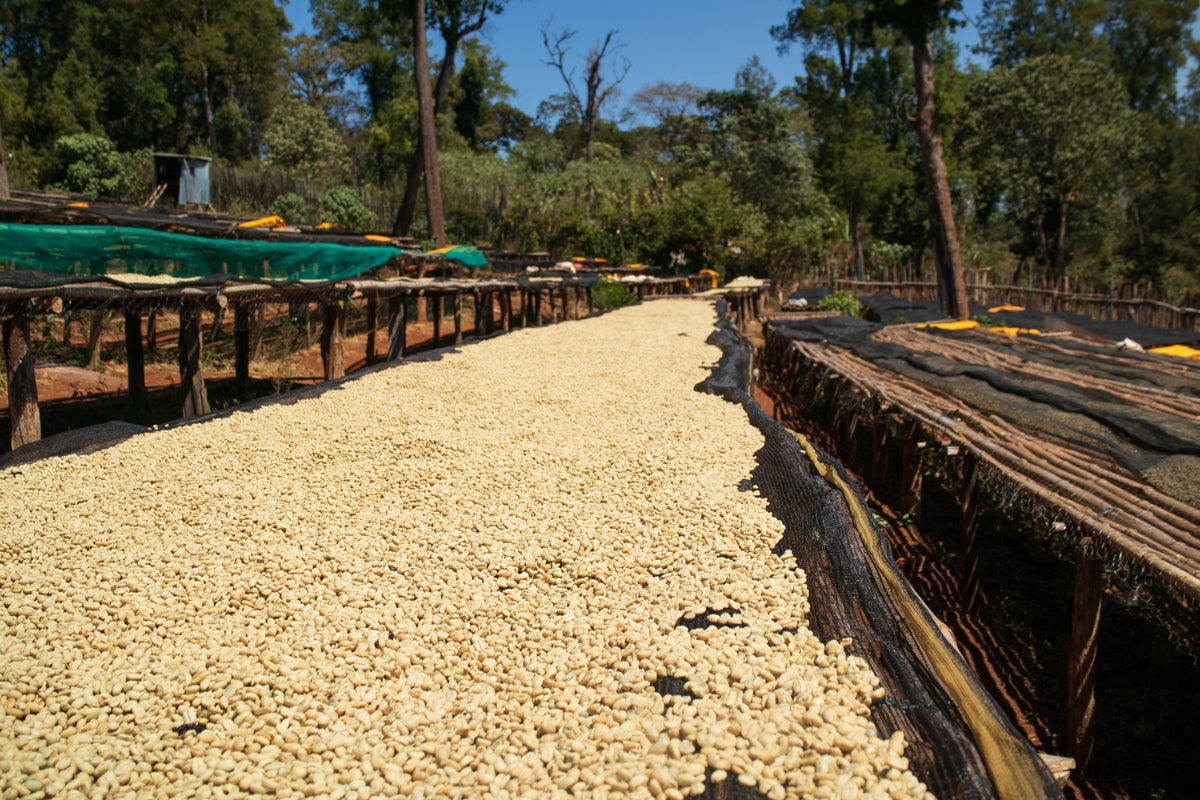
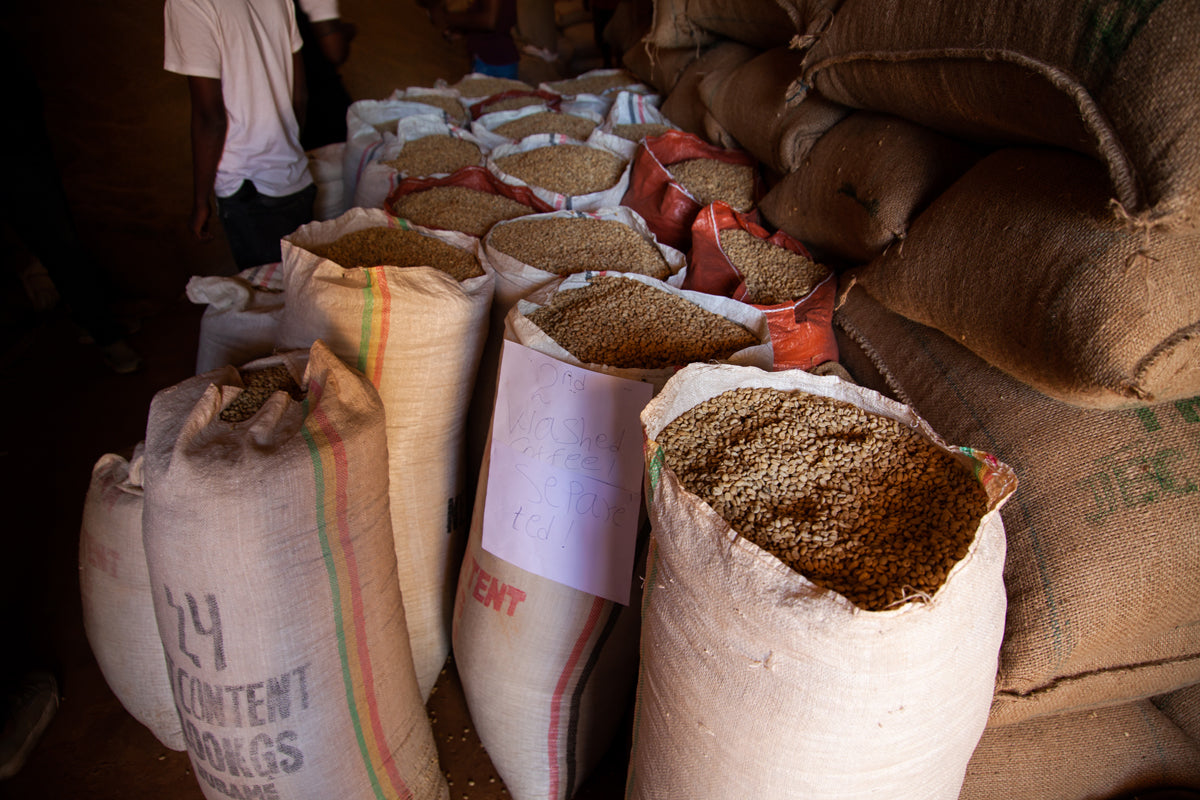
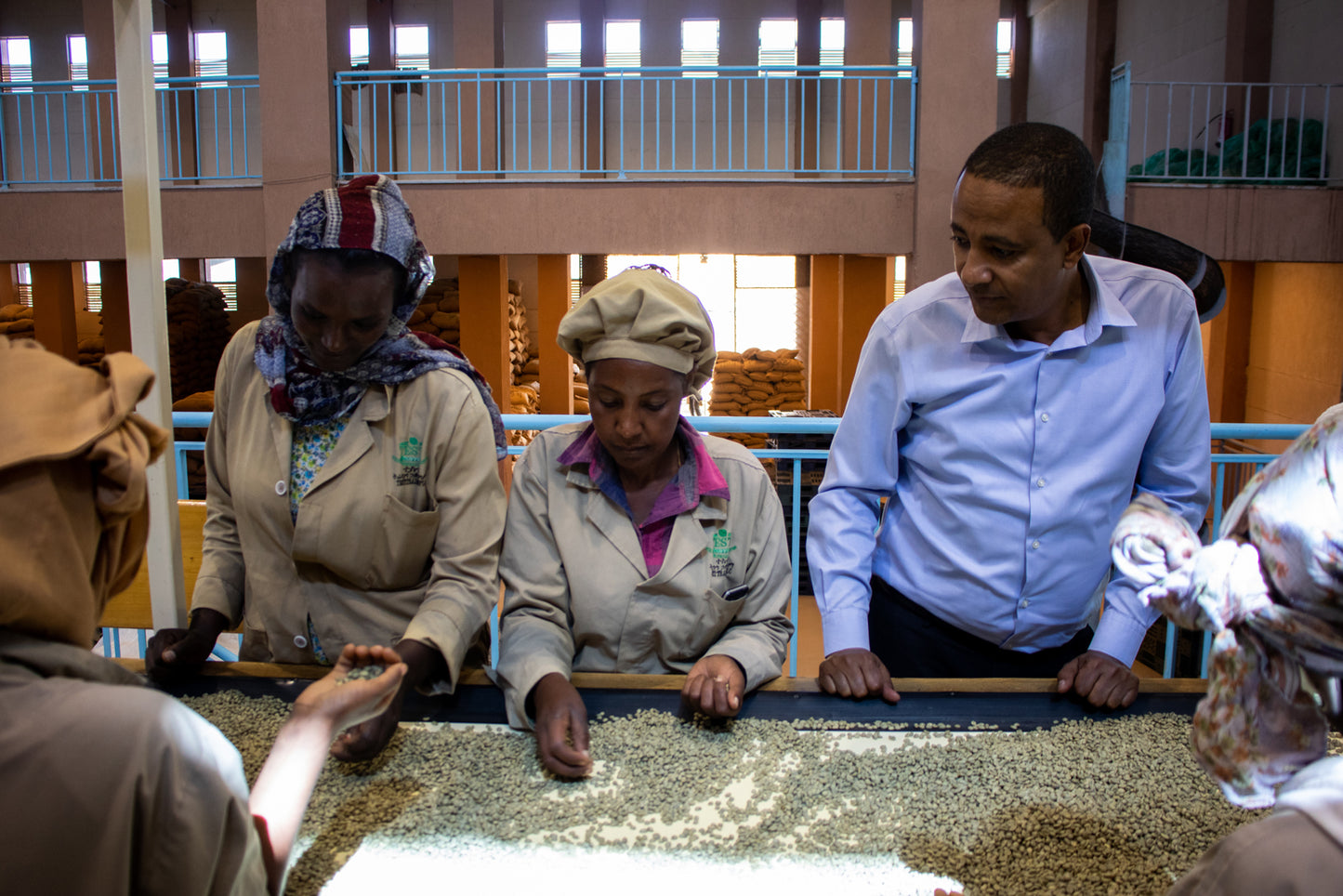
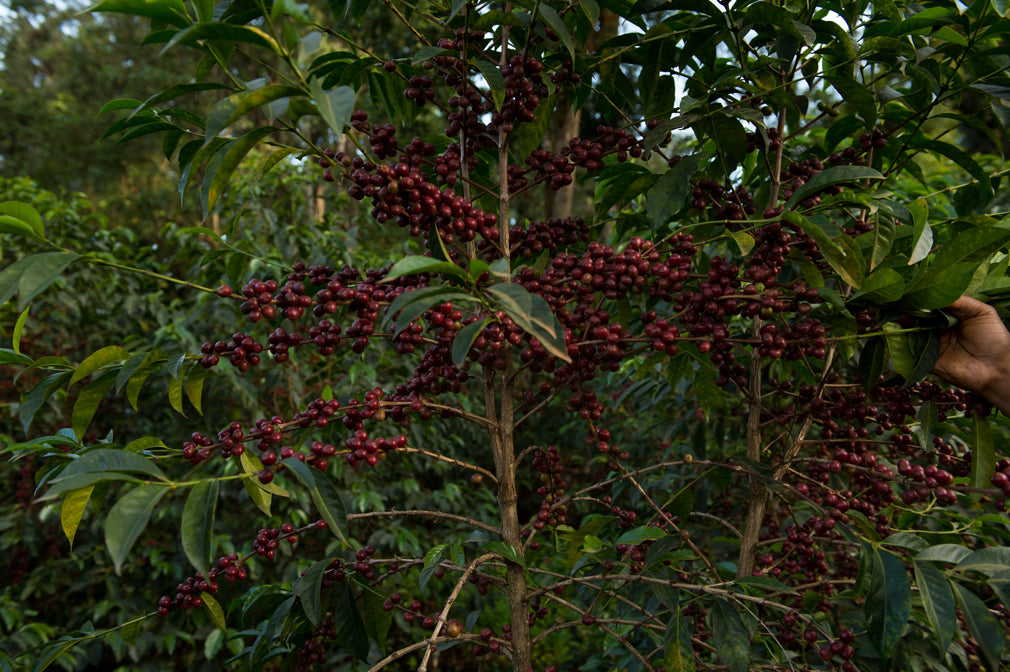
This coffee’s roasted in our espresso style — but that doesn’t mean you need to brew it as espresso. You can make it however you like — espresso, filter, moka pot, AeroPress or whatever you enjoy. We roast it a touch darker than we would a filter roast to caramelise the sugars and bring out smooth chocolatey and nutty flavours that cut beautifully through milk.
When you add milk the natural sweetness, fat and proteins tend to soften acidity and highlight caramelised flavours. That’s why lighter filter roasts can sometimes taste a bit sharp or sour with milk — they’re simply not built for it. Espresso roasts being more developed balance this out. The deeper caramelisation creates toffee and cocoa notes that blend harmoniously with milk’s creaminess while a hint of gentle bitterness adds that satisfying ‘coffee punch’ in your flat white or cappuccino.
If you prefer your coffee black this roast will still give you a full-bodied rich cup with plenty of depth and sweetness. For a lighter fruitier experience you might enjoy exploring our filter range instead.
Origin and Sourcing
?
?
Roast Details
?
?
Taste Profile
?
?
Ethiopia | Jigesa | Kurume & Wolisho Washed - When is peak freshness?
Medium Roast - Roasted on Roest L100 Ultra
Other Information
Washing Station: Jigesa
Washing Station Owner: Faysel A. Yonis
Jigesa (pronounced “Jee-geh-sa”) is a privately owned washing station located in the Shakisso woreda of Ethiopia’s Guji zone, named after the nearby village of Jigesa. Established in 2014, the station sits at 1,851m above sea level and processes both washed and natural lots from around 500 local outgrowers, primarily from the kebeles of Dambi Uddo, Wese, and Suke.
Farms in this area are small, averaging 2–5 hectares, and are typically intercropped with corn, grain, bananas, and shaded by indigenous trees like Birbira, Wanza, and Acacia. With elevations ranging from 1,800 to 2,050m and cool temperatures (15–20°C), the conditions here are ideal for slow cherry development—leading to dense beans and beautifully complex flavour profiles.
Jigesa plays a key role in a broader initiative called Premium Cherry Selection (PCS), aimed at rewarding farmers who deliver only the ripest cherries. This leads to standout lots that reflect the region’s best potential—vibrant, clean, and sweet.
Processing Details
This lot was processed using the washed method, with clean water from the Mormora and Bishan Dimo rivers. After careful hand-sorting and flotation, the cherries are pulped within hours of harvest. The parchment is then fermented for 36–48 hours, rewashed and graded by density, and finally soaked for 12 hours before being dried on raised beds for 5–7 days. During drying, workers sort out defects and turn the coffee frequently to ensure even moisture reduction.
About the Region
Guji was recognised as its own coffee-growing region in 2002, previously grouped under Sidama. The region is known for its diverse microclimates, high altitudes, rich soil, and heirloom varietals that thrive in semi-forested, organic environments. Coffee is the primary cash crop, grown by smallholders using largely traditional methods with minimal inputs.
Varieties
This lot is primarily composed of local landrace varieties Kurume and Wolisho. These cultivars are indigenous to Ethiopia and contribute to the floral, tea-like, and fruit-forward cup profiles that define coffees from this part of the world. The term “heirloom” is often used broadly, but many of these varieties are carefully propagated and prized for their unique characteristics.
Why We’re Excited About This Coffee
This lot showcases what makes Guji so special—bright green apple acidity, complex florals, and a juicy pineapple sweetness. It’s a beautifully structured, expressive washed coffee from one of the most exciting origins in Ethiopia.
SKU: eth_jigesa_1000g
Package Weight: 1150g
How does my coffee come packaged?
- Choosing a selection results in a full page refresh.
- Opens in a new window.

